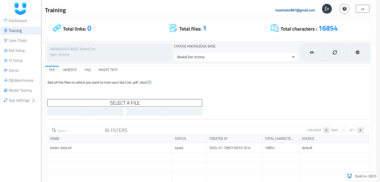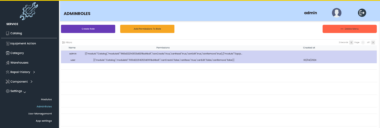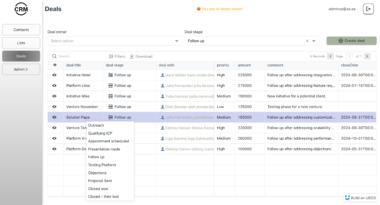Unleash the Power of Agentic AI with MCP Server: A Deep Dive
In today’s rapidly evolving technological landscape, the ability to efficiently access, process, and utilize information is paramount. The MCP (Model Context Protocol) Server emerges as a powerful solution, seamlessly blending cutting-edge technologies like LangChain, Retrieval-Augmented Generation (RAG), and Model Context Protocol (MCP) to create an intelligent, agentic AI system. Integrated with tools like Exa API for web search and FireCrawl for content retrieval, and flexible LLM options via Ollama and OpenAI, the MCP Server empowers users to extract relevant answers and insights from the vast expanse of the internet.
Understanding the Core Components
Before diving into the practical applications, let’s break down the key elements that make the MCP Server so effective:
- LangChain: This robust framework acts as the brain of the system, enabling the creation of sophisticated AI agents. LangChain facilitates the orchestration of various components, allowing the agent to make decisions, plan actions, and interact with the environment.
- Retrieval-Augmented Generation (RAG): RAG addresses the limitations of traditional language models by grounding them in real-world knowledge. It works by first retrieving relevant information from a knowledge base (in this case, the internet) and then using that information to generate more accurate and contextually appropriate responses.
- Model Context Protocol (MCP): MCP standardizes the way applications provide context to Large Language Models (LLMs). This ensures seamless communication and interoperability between different AI components, enabling the agent to effectively utilize external tools and data sources. In essence, the MCP Server is a bridge, allowing AI models to access and interact with external data sources and tools.
- Exa API: Exa API provides powerful web search capabilities, allowing the agent to scour the internet for relevant information based on the user’s query.
- FireCrawl: FireCrawl is used to retrieve the actual content of web pages identified by the Exa API, providing the agent with the raw material needed for analysis and information extraction.
- Ollama: Ollama allows you to run open-source large language models locally. This is particularly useful for developers who want to experiment with different models or who need to process sensitive data without sending it to a third-party server. You can also use OpenAI through API.
Key Features and Capabilities
The MCP Server boasts a rich set of features designed to optimize information retrieval and AI agent performance:
- Comprehensive Web Search: Leveraging the Exa API, the MCP Server can conduct thorough web searches to identify relevant sources of information.
- Efficient Content Retrieval: FireCrawl enables the agent to quickly and reliably retrieve the content of web pages, ensuring that the agent has access to the data it needs.
- Enhanced Information Extraction with RAG: The RAG module employs sophisticated techniques to extract the most relevant information from retrieved documents, ensuring that the agent’s responses are accurate and contextually appropriate.
- Standardized Tool Invocation via MCP: The MCP Server provides a standardized protocol for tool invocation, allowing the agent to seamlessly integrate with other AI tools and services.
- Flexible LLM Support: The MCP Server supports both local LLMs via Ollama and cloud-based LLMs via OpenAI, giving users the flexibility to choose the LLM that best suits their needs.
- Versatile Architecture: The system can be configured to operate in direct search mode, agent-based search mode, or server mode, providing users with a range of deployment options.
- Robust Error Handling: The MCP Server includes comprehensive error handling mechanisms to ensure that the system remains stable and reliable, even in the face of unexpected errors.
- Asynchronous Processing: Asynchronous processing enables the MCP Server to efficiently handle multiple web operations concurrently, improving performance and responsiveness.
Use Cases: Transforming Industries with Agentic AI
The MCP Server’s capabilities extend across various industries, offering solutions to complex challenges and unlocking new opportunities.
- Enhanced Customer Support: Integrate the MCP Server with customer support systems to provide agents with instant access to relevant information, enabling them to resolve customer queries more quickly and efficiently. Imagine a customer asking about a specific product feature; the agent can use the MCP Server to search the web for relevant documentation, FAQs, and forum discussions, providing the customer with a comprehensive and up-to-date answer.
- Streamlined Research and Analysis: Researchers can leverage the MCP Server to quickly gather and analyze information from a wide range of sources, accelerating the pace of discovery. For example, a market analyst could use the MCP Server to monitor social media trends, news articles, and competitor websites, gaining valuable insights into market dynamics.
- Improved Content Creation: Content creators can use the MCP Server to research topics, verify facts, and generate ideas, leading to more engaging and informative content. A blogger writing about a new technology could use the MCP Server to gather background information, identify key trends, and find relevant examples.
- Optimized Decision-Making: By providing access to real-time information and expert analysis, the MCP Server can empower decision-makers to make more informed choices. A financial analyst could use the MCP Server to track market movements, analyze company financials, and assess investment risks.
Getting Started with the MCP Server
To start using the MCP Server, follow these simple steps:
- Clone the Repository: Clone the repository from GitHub.
- Install Dependencies: Install the required dependencies using
pip install -r requirements.txtorpoetry install. - Configure Environment Variables: Create a
.envfile and configure the necessary environment variables, such as API keys for Exa and FireCrawl. - Run the Application: Run the application in one of three modes: direct search mode, agent mode, or server mode.
For detailed instructions, refer to the project’s README file.
The Power of UBOS: Elevating AI Agent Development
While the MCP Server provides a powerful foundation for agentic AI, platforms like UBOS take it to the next level. UBOS is a full-stack AI Agent Development Platform focused on bringing AI Agents to every business department. UBOS complements the MCP Server by offering:
- AI Agent Orchestration: UBOS provides a visual interface for orchestrating complex AI Agents, allowing you to easily chain together multiple tasks and tools.
- Enterprise Data Connectivity: UBOS enables you to connect your AI Agents to your enterprise data sources, such as databases, CRMs, and file systems.
- Custom AI Agent Building: UBOS allows you to build custom AI Agents tailored to your specific needs, using your own LLM models and data.
- Multi-Agent Systems: UBOS supports the creation of Multi-Agent Systems, allowing you to build collaborative AI systems that can solve complex problems.
By combining the MCP Server with the capabilities of UBOS, you can unlock the full potential of agentic AI and transform your business operations.
Conclusion
The MCP Server represents a significant advancement in the field of AI-powered information retrieval. By combining the strengths of LangChain, RAG, MCP, and other cutting-edge technologies, it provides a powerful and versatile tool for accessing, processing, and utilizing information from the web. Whether you’re a researcher, a content creator, a customer support agent, or a decision-maker, the MCP Server can help you unlock new insights, streamline your workflows, and achieve your goals. Coupled with platforms like UBOS, the possibilities are limitless. Embrace the future of AI with the MCP Server and UBOS, and experience the transformative power of agentic intelligence.
Search Engine with RAG and MCP
Project Details
- arkeodev/search-engine-with-rag-and-mcp
- MIT License
- Last Updated: 4/27/2025
Recomended MCP Servers

MCP Server for Adobe After Effects. Enables remote control (compositions, text, shapes, solids, properties) via the Model Context...
Inkdrop Model Context Protocol Server
An FFMPEG powered MCP server for basic Video and Audio editing

Twitter MCP Tool



MCP server for Glean API integration
MCP Server for the Mapbox API.
MCP for Publicly available datasets of the Government of Singapore [Unofficial]
 From vibe coding to vibe deployment. UBOS MCP turns ideas into infra with one message.
From vibe coding to vibe deployment. UBOS MCP turns ideas into infra with one message.





